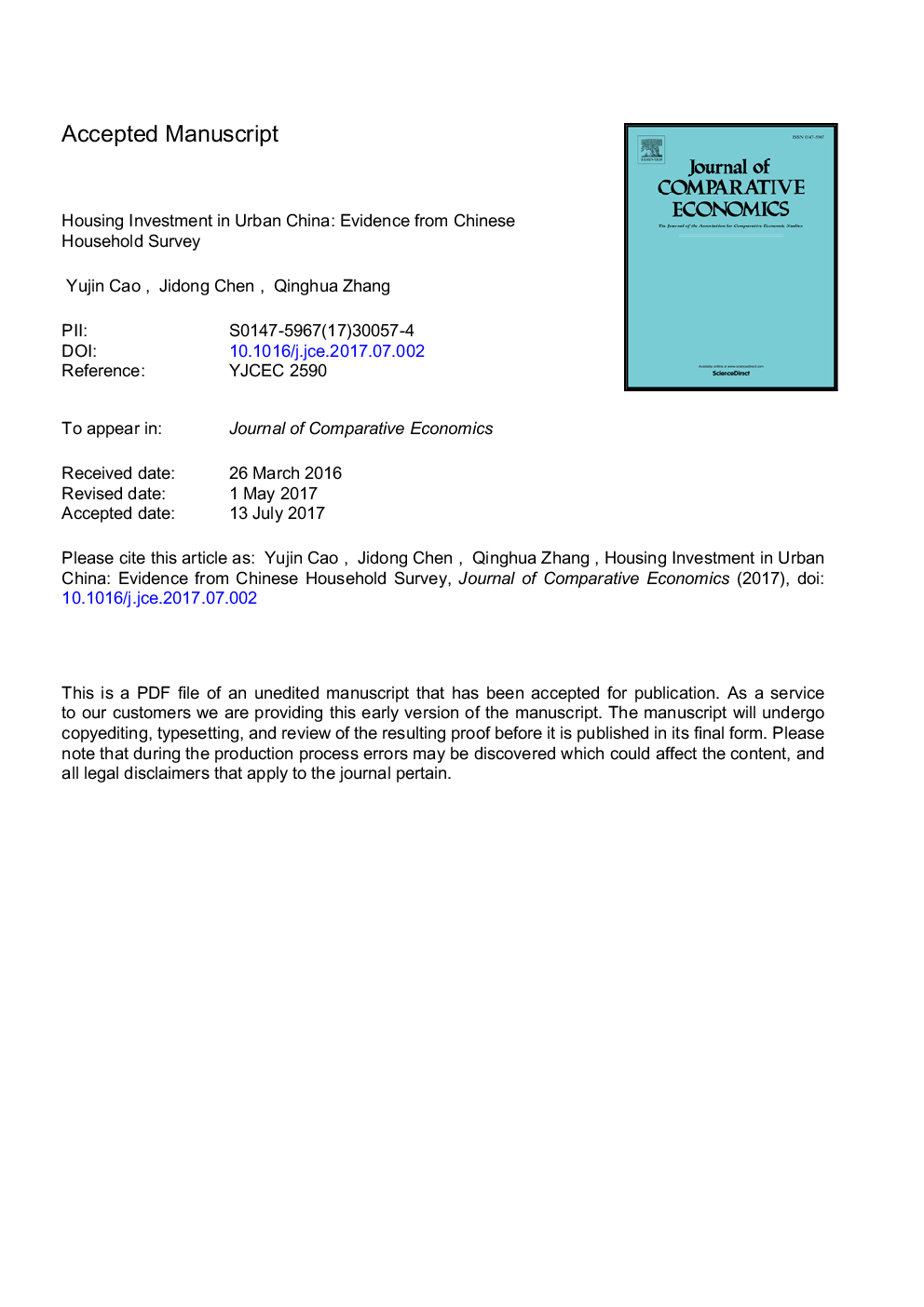| Article ID | Journal | Published Year | Pages | File Type |
|---|---|---|---|---|
| 7356918 | Journal of Comparative Economics | 2018 | 89 Pages |
Abstract
What explains the rapidly increasing housing investment demand in China? To address this question, we develop an analytical framework featuring how expected capital gains impact households' housing investment decisions when subject to financial constraints. Housing demand in China takes place not only through households' owning multiple houses, but also through their owning a larger primary living residence if they are constrained from buying multiple houses. We show that households are more likely to own multiple houses when expecting higher capital gains. As expected capital gain increases, the primary housing demand of those households who are constrained from owning multiple houses increases, while those owing multiple housing units invest in extra ones instead of improving primary housing. Our empirical findings, based on 2010 and 2011 household survey data, are consistent with our theoretical predictions. We also find that the marginal effect of expected capital gains is higher for wealthier households. This links the booming housing market to widening income inequality which is a typical growth pain in a developing country like China. As an extension, we apply the analysis to derive implications of the institutional features (such as purchasing restriction policy and the existence of subsidized housing) for China's housing markets.
Related Topics
Social Sciences and Humanities
Economics, Econometrics and Finance
Economics and Econometrics
Authors
Cao Yujin, Chen Jidong, Zhang Qinghua,
